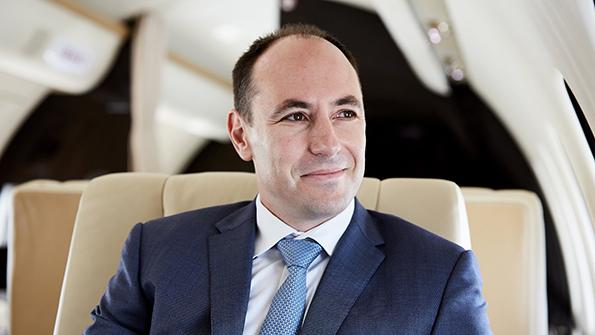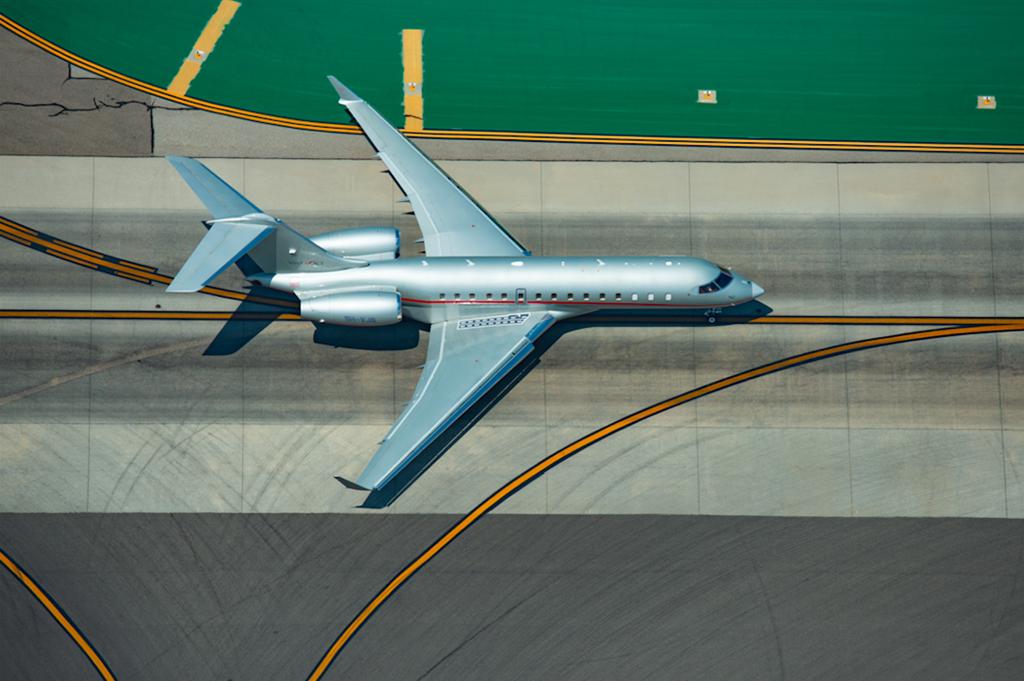
As the aviation industry largely ground to a halt toward the end of the first quarter of 2020, a few operators kept flying. Among them was VistaJet, the private-jet aviation company headquartered in Malta. According to Chief Commercial Officer Ian Moore, VistaJet has been able to continue operations through a combination of thorough preparation, a worldwide knowledge base and a workforce that has shown remarkable levels of adaptability and resolve.
“We’re in a unique place, because we’re the only global aviation company in private jets,” he says. “Since early January we were very close to what was going on in China, so we had an early indicator of the complexity of what would come and that was good practice for the next couple of months. We knew how to keep our customers safe, keep our crews safe and keep our cabins safe.”
A well-rehearsed business-continuity plan that Moore says the company exercises “a couple of times a year” was enacted. “You never know until you do it, and we pressed that button,” he says. “I was very impressed.” Central to the plan is VistaJet’s 24/7 operation in Malta which can be self-contained. “People will be in there for a lengthy period of time—I’m talking about weeks—just in case something happens, so we can continue operations.”

Moore sees the company’s experience during the pandemic in three distinct phases. The first covers late February and most of March; the second, April and into May; and the third, beginning now.
The first phase featured two distinct spikes in demand as, initially, customers and their families flew from Asia to Europe and the U.S.; then, later, once different countries’ restrictions on movement and entry evolved and initial virus hotspots began to emerge from their lockdowns, came repatriations from Europe and the U.S. back to Asia.
“We were probably one of the only providers to see that first spike, because we’re global and we connect continents, and that’s where the flying was,” Moore explains, “and because 50% of our fleet is made up of super-long-range or ultra-long-range aircraft, and we have the experience not just of 16 years of operating globally, but also of dealing with the COVID situation in the preceding months.”
According to Moore, VistaJet benefited in this period from a drop in supply in the charter market as owners withdrew their aircraft for their own use. The company also flew a large number of first-time customers.
The second phase, in April, saw an increase in workload for sales and operations staff—the majority by now working from home. But increasingly stringent restrictions, varying from country to country and constantly under review, meant only a small proportion of requests could be met.
“We were still flying customers, but there were more and more restrictions,” Moore says. “Flying was becoming a lot more challenging. My operations team and my sales teams were running around finding out if we could do a flight. We’d do that 10 times and only one would end up happening. The database we were able to compile needed to be updated every 15 or 20 min., because so many things were changing.”
The company is now into what Moore sees as the third phase.
“We’re seeing a couple of different things,” he says. “First of all, more one-off flights are coming back again. In April, people started to realize they couldn’t fly, so they delayed flights for a couple of weeks. In May, we started seeing those flights come in and people begin to move more. In parts of America, things weren’t closed and flights were being conducted every day. But we’re still not at full speed.”
Getting back to pre-crisis levels of operation will take time, but Moore is confident the demand will return.
“We’re a company that’s eternally optimistic anyway,” he notes. “We also know how fragmented the industry is, and how little any operator has in terms of market share.
“We’re still confident that not only will the private-jet market potentially see an upturn—or, at worst, continue on the same trajectory as before COVID—but also I think for the first 12 to 18 months [of post-crisis recovery] there will be a trend toward people maybe flying less overall, but flying more privately. So we feel very confident of the future for VistaJet and the the private aviation industry, which just gone through a temporary blip, and we feel it will come back pretty quickly. We’re already seeing that with the demand for flights coming in for the rest of May and for June.”
VistaJet earlier reported a 16% year-over-year increase in flights in the first 10 weeks of 2020, with strong U.S. demand accounting for 23% of its global flights. Last year was strong with double-digit increases in flights and passengers, but founder and Chairman Thomas Flohr has cautioned that this year will not see business as usual.
